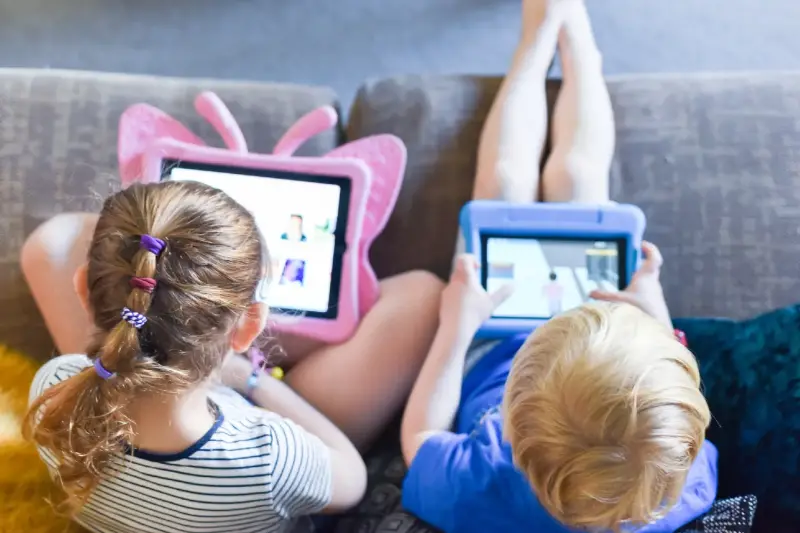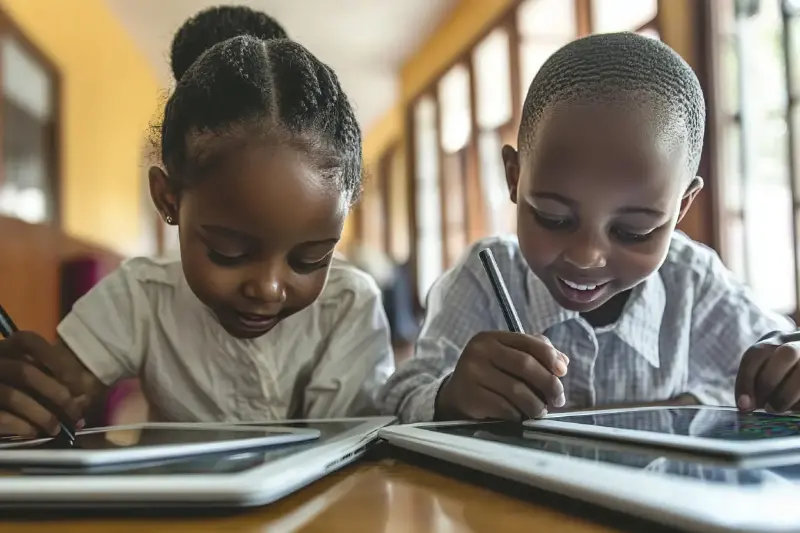Childhood Unplugged? The Digital Revolution Begins Early

Childhood is no longer simply about swings, slides, and storybooks. From the first time a toddler swipes across a tablet to the moment a teen joins their first online gaming community, the digital world increasingly shapes how young minds grow, learn, and connect. According to Ofcom’s 2023 report, 97% of UK children aged 3–17 now access the internet, with nearly half of 3–4-year-olds owning a tablet. These figures signal a cultural shift that’s transforming everything from playtime to personality.
Screen Time: Blessing or Curse?
The question on every parent’s mind: How much is too much? Recent research suggests that moderate screen use—particularly interactive content like games and coding apps—can enhance problem-solving skills and even improve literacy in early years. Yet, the story changes when screens edge into every hour. The Royal College of Paediatrics and Child Health advises that excessive use, especially before bed, can disrupt sleep patterns and possibly hinder academic performance.
But screens are not all created equal. Here's what they can offer:
- Learning Apps: Platforms like Scratch and Sumdog turn maths and coding into adventures.
- Social Connectivity: Video calls with relatives build bonds across miles.
- Creativity Tools: Drawing, music, and storytelling apps unleash artistic expression.
Balance is key. It’s not just the hours spent, but what children do with those crucial moments online.
Brains on Bytes: Development in a Digital Age
Children’s brains are incredibly adaptable. Neurologists describe this as ‘plasticity’—the ability for neural pathways to change and grow. Digital experiences feed this process in distinctive ways:
- Multitasking Mastery: Studies show kids exposed to multiple digital formats often develop faster 'task-switching' skills—but may struggle with deep, focused work.
- Visual Literacy: Video content sharpens the ability to interpret images and emotions, building new kinds of intelligence.
- Delayed Gratification: Instant access to entertainment can reduce patience, a crucial life skill.
However, face-to-face interaction remains irreplaceable for emotional intelligence. Researchers have linked reduced offline play with challenges in reading social cues and managing empathy.
Dangers Lurking in the Digital Playground
Not everything online is child-friendly. Cyber-bullying, inappropriate content, and privacy breaches are headline issues for young users. The NSPCC reports a steady rise in online abuse reports, urging stricter controls and digital literacy education.
Parents and guardians can help safeguard young minds by:
- Using robust parental controls
- Keeping devices in shared spaces
- Starting open conversations about digital choices
Knowledge truly becomes power when both adults and children engage critically with their virtual worlds.

Digital Society: Shaping Tomorrow’s Leaders
Generation Alpha—the cohort born after 2010—are already being called ‘digital natives.’ For them, the line between online and offline will only blur further. Curriculums worldwide are pivoting to include e-safety lessons and critical thinking about technology.
But it’s not just academics who benefit. Interviews with teens reveal that online communities give voice to those who once felt sidelined. From disability advocacy on TikTok to global chess tournaments, the digital age is teaching children to collaborate, communicate, and campaign on a scale never before possible.
Looking at digital life’s impact, we see both promise and peril, innovation and uncertainty. What kinds of leaders will tomorrow’s screen-savvy children become? As technology continues to weave ever tighter into the fabric of childhood, perhaps the greatest challenge—and opportunity—lies in teaching the next generation not just to consume technology, but to use it wisely, empathetically, and creatively. The adventure is just beginning. How will young minds continue to shape, and be shaped by, this remarkable digital frontier?
